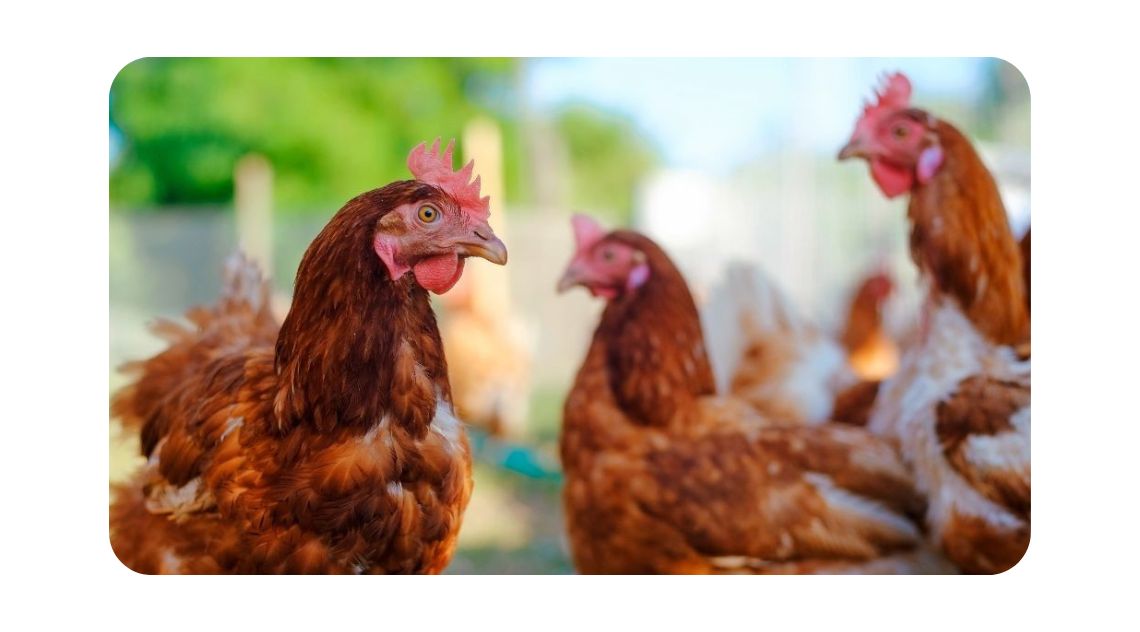

Raising chickens can be a lot of fun, but keeping them healthy and free of parasites is important. Chickens are susceptible to a variety of parasites, which can make them sick and reduce their egg production.

Today’s post looks at effective poultry wormers that are safe for your flock and help keep them parasite-free. These are available in various formulations, including liquids, powders, and granules. They can be administered orally or topically, and some can be added to the chicken's water.
Poultry wormers are an important part of keeping your flock healthy, so be sure to choose one that is effective against the parasites that are common in your area. And remember to follow the manufacturer's directions for use.
There are a number of reasons to use a poultry wormer on your flock. Chickens can be infected with a variety of parasites, including:
These worms live in the chicken’s trachea (windpipe) and can cause respiratory problems.
These worms live in the chicken's intestine and can cause poor growth, reduced egg production, and diarrhoea.
These worms attach themselves to the lining of the chicken's intestine and can cause poor appetite and weight loss.
Worms can make chickens sick and reduce their productivity, so it's important to keep them free of parasites. Poultry wormers are available in various formulations, including liquids, powders, and granules. They can be administered orally or topically, and some are even designed to be added to the chicken's water.
When choosing a poultry wormer, be sure to choose one that is effective against the parasites that are common in your area. And follow the manufacturer's directions for use.

There are a variety of poultry wormers available on the market. Here are some of the most common types:
These wormers are easy to administer and are available in ready-to-use formulations. Some liquid wormers can be added to the chicken's water, making them especially convenient.
These wormers are available in a variety of formulations, including those that can be added to the chicken's feed or water.
These wormers are easy to use and can be added to the chicken's feed or water.
These wormers are given directly to the chicken, either by mouth or through a syringe.
These wormers are applied to the chicken's skin and feathers and are effective against both internal and external parasites.
Flubenvet is a broad-spectrum wormer that is effective against a variety of parasites, including gapeworms, roundworms, and tapeworms. It is available in granular form and can be added to the chicken's feed or water.

Flubenvet has a wide margin of safety and can be used on chickens of all ages, including chicks. It is also effective against coccidia, a type of protozoan that can cause diarrhoea in chickens.
To use Flubenvet, simply add it to the chicken's feed or water according to the manufacturer's directions. For best results, treat the entire flock at the same time.
Poultry wormers are available in a variety of formulations, including liquids, powders, and granules. They can be administered orally or topically, and some are even designed to be added to the chicken's water.
When using any poultry wormer, be sure to follow the manufacturer's directions for use. Some wormers must be used for a specific number of days, while others can be used as needed.
It's also important to treat the entire flock at the same time. Doing so will help prevent the spread of parasites from chicken to chicken.
Poultry wormers can be used as needed or on a regular basis. Some wormers are designed to be used on a monthly basis, while others can be used more often if necessary.
It's a good idea to have a poultry wormer on hand in case of an outbreak of parasites. And, be sure to consult your veterinarian if you have any questions about using wormers on your chickens.
As with any medication, there are some precautions to take when using poultry wormers. Be sure to follow the manufacturer's directions for use and consult your veterinarian if you have any questions.
Poultry wormers can be toxic to humans and animals if used incorrectly. Be sure to keep them out of reach of children and pets. And wash your hands after handling them.
Some wormers can cause side effects in chickens, such as diarrhoea or vomiting. If you notice any adverse reactions, stop using the wormer and consult your veterinarian.

Poultry wormers are an important part of keeping your flock healthy and parasite-free. There are a variety of formulations available, including liquids, powders, and granules. And they can be administered orally or topically.
When using any poultry wormer, be sure to follow the manufacturer's directions for use. And consult your veterinarian if you have any questions.
Poultry wormers can be used as needed or on a regular basis. Some wormers are designed to be used on a monthly basis, while others can be used more often if necessary.
Poultry wormers are available in a variety of formulations, including liquids, powders, and granules. They can be administered orally or topically, and some are even designed to be added to the chicken's water.
Poultry wormers can be used as needed or on a regular basis. Some wormers are designed to be used monthly, while others can be used more often if necessary.
Yes, there are poultry wormers that can be added to the chicken's water. Be sure to follow the manufacturer's directions for use.